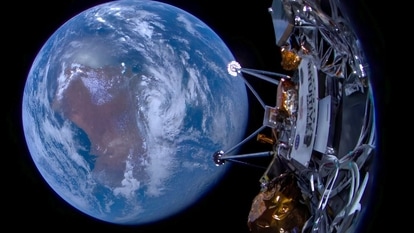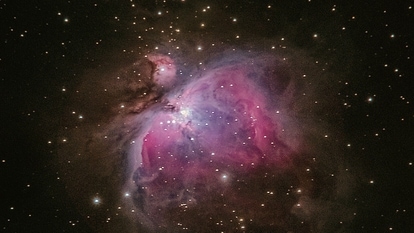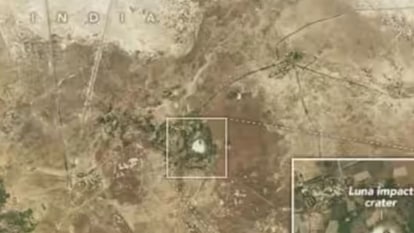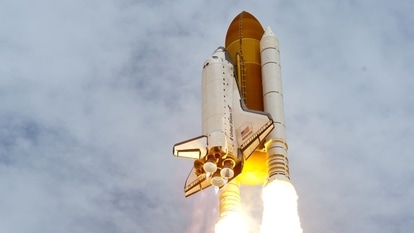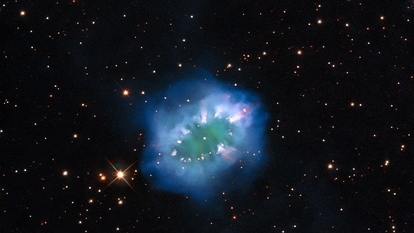NASA preparing nuclear-powered drone for mission to Saturn’s moon Titan
In preparation for the ambitious journey, NASA is developing a nuclear-powered, car-sized drone that will help study the surface of Titan as well as collect samples from it.
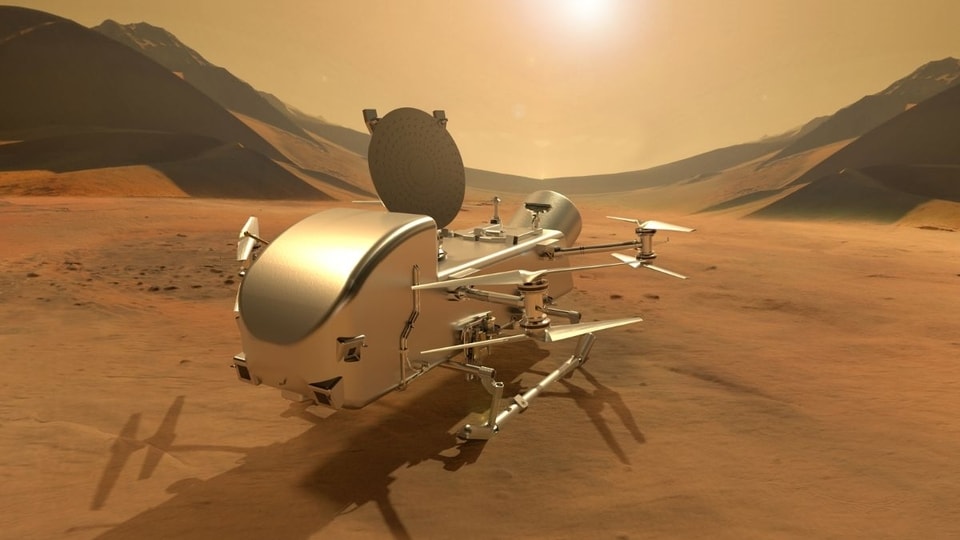
Not just the Moon, but NASA has been sending missions to asteroids, other planets, and even other moons in the solar system as of late. The US space agency recently launched the Psyche mission to a metal-rich asteroid, while the collected samples from the Bennu asteroid also returned to Earth last month. It has also been working on the Artemis program, NASA's first manned lunar mission since Apollo 17. However, perhaps the most ambitious mission is the Dragonfly, the first-ever mission to the surface of another ocean world. As part of it, NASA will send a spacecraft to Titan, Jupiter's largest moon.
In preparation for the ambitious journey, NASA is developing a nuclear-powered, car-sized drone that will help study the surface of Titan as well as collect samples from it.
NASA Dragonfly drone
The Dragonfly is a rotorcraft lander in development led by the Johns Hopkins Applied Physics Laboratory (APL) in Laurel, Maryland. According to NASA, it will be equipped with cameras, sensors and samplers to examine the organic materials from the samples collected. Through studies, it has been known that the moon may have liquid water beneath its icy surface.
In a NASA release, Ken Hibbard, Dragonfly mission systems engineer at APL said, “With Dragonfly, we're turning science fiction into exploration fact. The mission is coming together piece by piece, and we're excited for every next step toward sending this revolutionary rotorcraft across the skies and surface of Titan.”
To soar through Titan's dense, nitrogen-rich atmosphere, the Dragonfly drone will be equipped with four pairs of coaxial rotors. Mission engineers have conducted two test campaigns in NASA Langley's Subsonic Tunnel which is used to test the computational fluid dynamics models. On the other hand, the two tests carried out in the Transonic Dynamics Tunnel (TDT) help test the aerodynamic stability of the drone as well as model the Lander's rotors aerodynamics.
“All test objectives were successfully accomplished and the data will help increase confidence in our simulation models on Earth before extrapolating to Titan conditions”, Hibbard added further.
What is the Dragonfly mission?
The Dragonfly mission is the fourth mission of NASA's New Frontiers Program, a series of space exploration missions to further enhance our understanding of the solar system. It will involve sending an unmanned spacecraft to Titan, Saturn's largest moon which is known to have organic materials on its surface at some point in history. The mission is scheduled to launch no earlier than 2027 and arrive at Titan in the mid-2030s.
Catch all the Latest Tech News, Mobile News, Laptop News, Gaming news, Wearables News , How To News, also keep up with us on Whatsapp channel,Twitter, Facebook, Google News, and Instagram. For our latest videos, subscribe to our YouTube channel.



